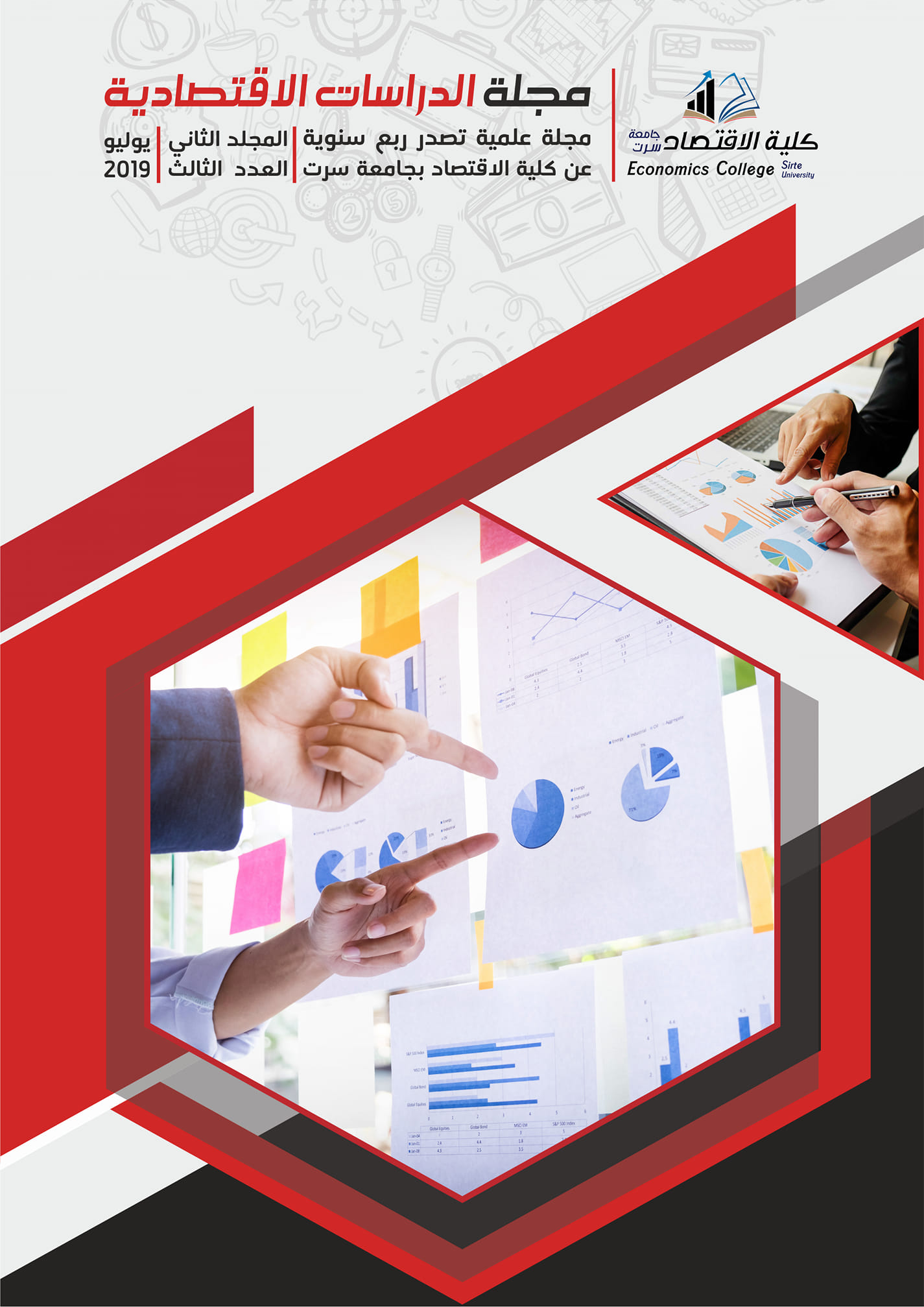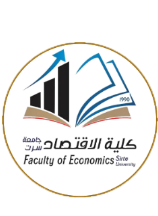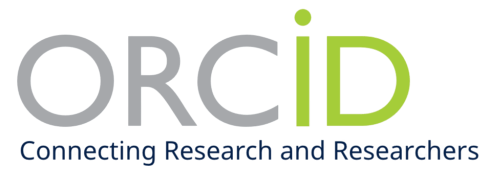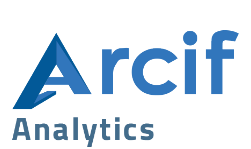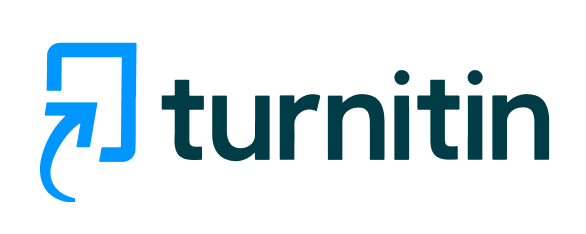العلاقة بين رأس المال الفكري وريادة الأعمال في الجامعات الخاصة بمدينة بنغازي دراسة ميدانية على الجامعة الليبية الدولية للعلوم الطبية
DOI:
https://doi.org/10.37375/esj.v2i3.2041الكلمات المفتاحية:
ريادة الأعمال، رأس المال الفكري، منظمات الأعمال، الجامعات الخاصةالملخص
تهدف الدراسة إلى تناول وتعريف مفهوم رأس المال الفكري وعلاقته بريادة الأعمال في منظمات الأعمال . والتعرف على واقع أداء المؤسسات التعليمية في مدينة بنغازي وتقييم مستوى أهتمامها بمتطلبات التحول لاعتماد رأس المال الفكري كأحد عناصر الأصول المهمة . بالإضافة للتوصل إلى نتائج قد تساعد في تحقيق ريادة الأعمال تتناسب مع عينة الدراسة وكذلك تقديم رؤية مقترحة للتطوير . وقد شمل مجتمع الدراسة أعضاء هيأة التدريس بالكليات الطبية في الجامعات الليبية الدولية للعلوم الطبية عن الفترة من مايو حتى أغسطس 2018 ، حيث تم تجميع البيانات الخاصة بهذه الدراسة عن طريق توزيع استمارة استبيان على عينة عشوائية من مجتمع الدراسة . شملت متغيرات الدراسة رأس المال الفكري بأبعاده الثلاثة كمتغير مستقل ، وريادة الأعمال كمتغير تابع ، كما تم استخدام البرنامج الاحصائي SPSS لتحليل البيانات التي تم الحصول عليها .وقد أظهرت النتائج أن هناك علاقة ارتباط ذات ذلالة إحصائية بين رأس المال الفكري وتحقيق ريادة الأعمال مما أدى لقبول الفرضية الصفرية ورفض الفرضية البديلة . كما أوصت الدراسة بتوسيع الدراسة لتشمل باقي الجامعات الخاصة في ليبيا ، وكذلك إجراء مثل هذه الدراسات لتشمل منظمات الأعمال الليبية بالإضافة إلى توظيف مكونات رأس المال الفكري في منظمات الأعمال بشكل أكثر فاعلية من أجل تعزيز تأثيرها الإيجابي في تحقيق الريادة في العمل .
المراجع
• Ahmadi, A., Ahmadi, F.,& Shakeri, S. (2011). The survey of relationship between Intellectual capital (IC) and performance (OP) within the national Iranian south oil company. Interdisciplinary Journal of Contemporary Research in Business, 3 (5), 1 – 12.
• Allameh, S., Abbasi, S., & Shokrani, S. (2010). The mediating role of organisational learning capability between intellectual capital and job satisfaction. European Journal of Social Sciences, 17(1), 1–12.
• Ayar, S., Bakhnoo, M., Abdoullahi, S., & Mahmoodi, A. (2016). Investigating the relation between intellectual capital and organizational entrepreneurship: case study the governmental institutions of west Azerbaijan province in Iran. International Journal of Humanities and Cultural Studies, 2509 – 2522.
• Bollen, L., Vergauwen, P., & Schnieders, S. (2005). Linking intellectual capital and intellectual property to company performance. Management Decision, 43(9), 1161–1185.
• Bontis, N., Chua, W. C. K. & Richardson, S. (2000). Intellectual Capital and Business Performance in Malaysian Industries. Journal of Intellectual Capital ،1(1), 85-100.
• Bontis, N., Crossan, M., & Hulland, J. (2002). Managing an organizational learning system by aligning stocks and flows. Journal of Management Studies, 39(4), 439–469.
• Brooking, A. (1997). The management of intellectual capital. Long Range Planning, 30 (3), 364–365.
• Cabrita, M., & Bontis, N. (2008). Intellectual capital and business performance in the Portuguese banking industry. International Journal of Technology Management, 43(1–3), 1–26.
• Choudhary, J. (2010). Performance impact of intellectual capital: A study of Indian IT sector. International Journal of Business and Management, 5(9), 72–80.
• Edvinson, L., & Malone, M. (1997). Intellectual capital: Realizing your company’s true value by finding its hidden roots. New York, NY: Harper Business.
• Eren, E., & Kocapinar, E., B. (2009). Is Intellectual Capital Antecedent of Entrepreneurship Orientation. Journal of Global Strategic Management, 3 (2), 121- 135.
• Haidar, J.I. (2012). Impact of Business Regulatory Reforms on Economic Growth. Journal of the Japanese and International Economies, Elsevier, 26(3), 285–307.
• Halim, S. (2010). Statistical analysis on the intellectual capital statement. Journal of Intellectual Capital, 11(1), 61–73.
• Hsu, Y., & Fang, W. (2009). Intellectual capital and new product development performance: The mediating role of organizational learning capability. Technological Forecasting & Social Change, 76(5), 664 677.
• Isaac, R., Herremans, I., & Kline, T. (2010). Intellectual capital management enablers: A structural equation modeling analysis. Journal of Business Ethics, 93(3), 373–391.
• Kavida,V., & Sivakumar. (2009). Intellectual capital: A strategic management perspective. The IUP Journal of Knowledge Management, 7(6), 55–69.
• Kristandl, G. & Bontis, N. (2007). Constructing a Definition for Intangibles using the Resource Based View of the Firm. Management Decision, 45(9), 1510-1524.
• Lings, I., & Greenley, G. (2005). Measuring internal market orientation. Journal of Service Research, 7(3), 290–305.
• Low, J. (2000). The value creation index. Journal of Intellectual Capital, 1(3), 252–262.
• Morgan, P. M.& Darroch, J. (2006). Large firms entrepreneurial marketing processes and the cycle of competitive advantage. European Journal of Marketing, 40 (5& 6). 485 – 501.
• Morris, M., & Schindenutte, M. (2002). Entrepreneurial Marketing a Construct for Integrating Emerging Entrepreneurship and Marketing Perspective. Journal of Marketing Theory and Practice, 10 (4), 1 – 19.
• Raja Adzrin, R. A., Abu Thahir, A. N. & Maisarah, M. S. (2009). Value Creation Strategy for Sustainability. Accountants Today, 22 (1), 12 – 18.
• Roos, G., Pike, S. & Fernström, L. (2005). Managing Intellectual Capital in Practice, Oxford: Butterworth-Heinemann.
• Safariyan, S., & Enaayati, T. (2018). The Effect of Organizational on Intellectual Capital Considering the Meditating Role of Academic Entrepreneurship in Mazandaran Islamic Azad University. Revista Publicando, 16 (1), 483 – 504.
• Sharabati, A., Jawad, S., & Bontis, N. (2010). Intellectual capital and business performance in the pharmaceutical sector of Jordan. Management Decision, 48(1), 105–131.
• Shih, K., Chang, C., & Lin, B. (2010). Assessing knowledge creation and intellectual capital in banking industry. Journal of Intellectual Capital, 11(1), 74–89.
• Subramaniam, M., & Youndt, M. (2005). The influence of intellectual capital on the types of innovative capabilities. Academy of Management Journal, 48(3), 450–463.
• Sullivan, P. H. (1999). Profiting from Intellectual Capital. Journal of Knowledge Management,3(2), 132-142.
• Talebi, K., & Bahamir, A. (2012). Identification of Intellectual Capital Effects on Promoting organizational Entrepreneurship (Charmahal – E Bakhtiari Ministry of Cooperatives, Labour and Social Welfare). International Journal of Business Economics& Management Research, 2 (6), 37 – 44.

